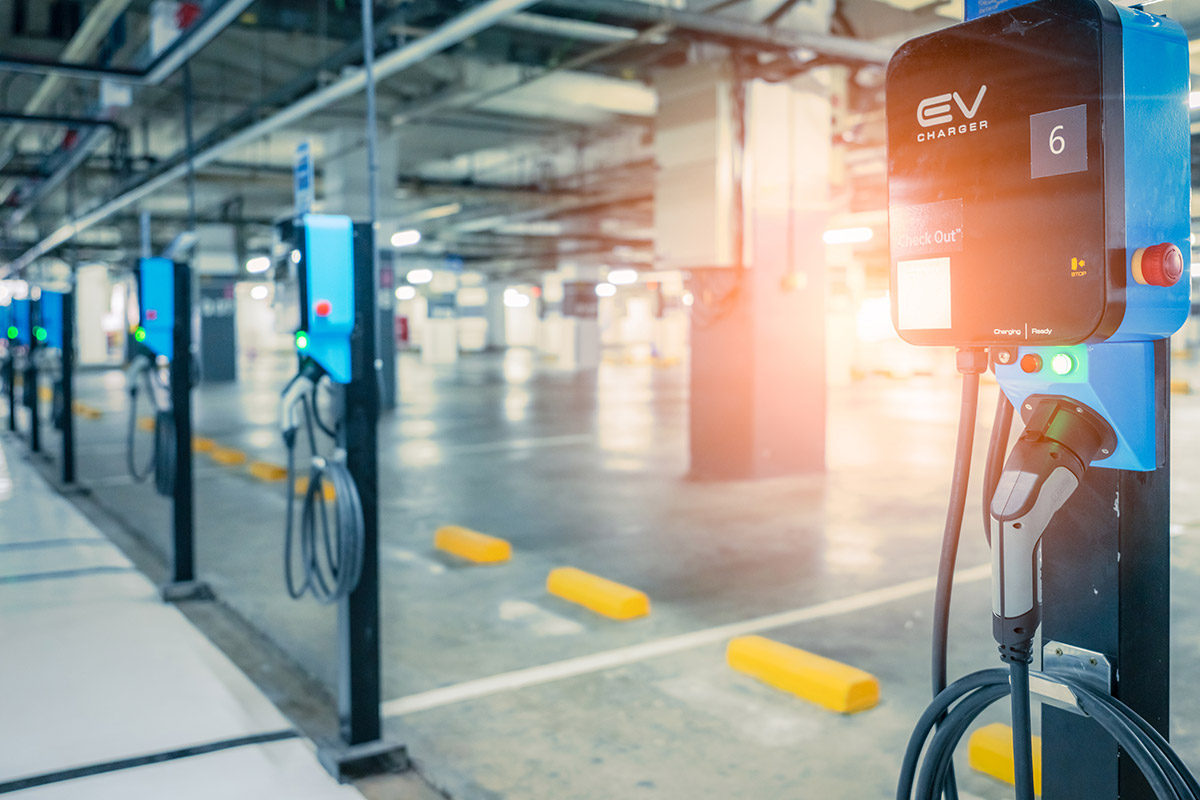There’s never been a better time to make the switch to electric.
The UK government’s push towards decarbonising the roads means that drivers are being encouraged more than ever to invest in zero-emission vehicles.
Along with doing your bit to reduce air pollution, you can also benefit from a number of electric car tax incentives and grants to make the transition that bit easier.
From exemption on road tax to discounts on charging-point installation, we’ve rounded up all the best benefits that you may be eligible for to cut the cost of owning an electric car.
How to save on electric car road tax
One of the most well-known savings that you can make by trading in your current petrol or diesel-engine car for an electric one, is on road tax.
Vehicle Excise Duty
Vehicle Excise Duty (VED) is more often known as ‘road tax’ or ‘vehicle tax’. Drivers using any vehicle on public roads must pay yearly road tax to the Driver and Vehicle Licensing Agency. Anyone who fails to pay is liable to a fine of up to £1,000.
How is vehicle tax calculated?
The amount of VED that you have to pay depends on a few different factors, such as your vehicle’s age, list price, and fuel efficiency. Road tax costs are split out into different rates called tax bands and these are categorised based on when your vehicle was registered.
- Vehicles registered on or after 1st April 2017 – These vehicles have two different payments: the first VED payment is determined by the level of carbon dioxide (CO2) emissions the car produces when it’s registered for the first time. More fuel-efficient cars will pay a lower amount, while vehicles that emit more exhaust pipe emissions will be charged more. The second, and subsequent, payments are charged at a fixed rate of £165 for most vehicles – regardless of CO2 emissions (as of August 2022).
- Vehicles registered between 1st March 2001 and 31st March 2017 – The cost of VED will be based on the fuel type and CO2 emissions of a vehicle.
- Vehicles registered before 1st March 2001 – VED is worked out based on a vehicle’s engine size.
- Vehicles with a list price of more than £40,000 – These vehicles must pay an extra £355 tax each year. This is paid from the second time that the vehicle is taxed, after the initial first-year tax payment, for the next five years.
While these are current prices of VED, vehicle tax rates are reviewed each year by the government and often increased annually in line with inflation.
Do electric cars pay road tax?
This depends on the type of electric car that you have. Pure electric cars don’t need petrol or diesel to run and, therefore, don’t release any CO2 emissions, so they’re fully exempt from paying road tax.
However, hybrid electric cars do release some greenhouse gases (although fewer than combustion-engine cars) so they are eligible for vehicle tax, albeit at a slightly lower rate.
Road tax for fully electric cars
As highlighted previously, 100% pure electric vehicles don’t have to pay any road tax. This applies to the first year that the car is registered and all the following years as well.
Fully electric, zero-emission cars are also exempt from paying the extra £355 tax if their car has a list price of £40,000 or more.
However, drivers of fully electric cars must still register their car to be taxed every year to avoid being fined.
Road tax for hybrid cars
Hybrid cars are classed as ‘Alternative Fuel Vehicles’. Their first-year VED costs are worked out based on the vehicle’s CO2 emissions.
Current vehicle tax prices for Alternative Fuel Vehicles
| CO2 emissions (g/km) | Alternative Fuel Cars first-year VED cost |
|---|---|
| 0 | £0 |
| 1 to 50 | £0 |
| 51 to 75 | £15 |
| 76 to 90 | £110 |
| 91 to 100 | £140 |
| 101 to 110 | £160 |
| 111 to 130 | £180 |
| 131 to 150 | £220 |
| 151 to 170 | £575 |
| 171 to 190 | £935 |
| 191 to 225 | £1,410 |
| 226 to 255 | £2,005 |
| Over 255 | £2,365 |
In the second year that they are registered, hybrid vehicles must pay a flat rate of £155 for vehicle tax. This is slightly cheaper than the cost of second-year VED for petrol or diesel-engine vehicles (£165).
Hybrid cars with a
list price of over £40,000 must also pay the extra £355 tax for five years after the initial year that the car has been registered. This brings the total of their second-year VED cost up to £510.
All vehicle tax rates
and charges are accurate as of 8th August 2022. For more information, visit the gov.uk website.

Electric car grants for your home
EV chargepoint grant
To help make at-home chargepoint installation more affordable for electric car drivers, the UK government introduced the EV chargepoint grant. It covers up to 75% of the cost to purchase and install a chargepoint socket at a residential property, offering up to £350 per grant.
It’s provided by the Office for Zero Emission Vehicles (OZEV) and is available for anyone who:
- owns and lives in a flat
- rents a residential property
- owns a property with its own private off-street parking space
- is moving to an eligible property with an old chargepoint that they wish to replace
- owns an OZEV-approved electric vehicle
Any EV owners who have previously benefited from the grant before, want to move their current chargepoint to a new property, or live in a house that they own are not eligible to apply for the scheme.
To apply for the EV chargepoint grant, drivers must get in touch with an OZEV-approved installer to receive their quote for installation and their quoted chargepoint model must be on the OZEV-approved model list. If all the criteria are met, the chargepoint installer will start the claim to begin the process. OZEV will pay the grant to your installer and the EV owner will pay the rest.
The EV chargepoint grant replaced the Electric Vehicle Homecharge Scheme with effect from the 1st April 2022.

Electric car grants for your company car
Reduced Benefit in Kind
If your employer gives you a company car to drive for private use or for commuting, you'll have to pay a tax on it and it will need to be reported to HM Revenue and Customs (HMRC). This is known as Benefit in Kind (BiK) tax.
BiK is how HMRC can collect tax from the benefit of an employee having a company car. Both companies and employees must pay BiK, but the actual price of the tax is calculated differently for each party.
- For businesses — BiK is worked out by the car’s list price when it was new (P11D) and its CO2 footprint.
- For employees — BiK is calculated based on P11D, the car’s BiK tax band, and the employee’s tax bracket.
Since carbon emission output is key to how much companies and employees pay for BiK, company car drivers are being encouraged to switch to EVs as they are more tax efficient and can benefit from paying less Benefit in Kind.
The current FY2022/2023 BiK tax rate for fully electric cars is 2%. This is significantly lower than petrol or diesel-engine vehicles which can rack up BiK tax rates of up to 37%, depending on their CO2 efficiency. Hybrid vehicles will also benefit from a reduced BiK tax rate as they will emit fewer emissions than combustion-engine cars.
BiK tax rates for petrol & hybrid cars registered from 6th April 2020
| CO2 emissions (g/km) | Electric mileage range | 2022/2023 (%) |
|---|---|---|
| 0 | N/A | 2 |
| 1 to 50 | 130 and above | 2 |
| 1 to 50 | 70 to 129 | 5 |
| 1 to 50 | 40 to 69 | 5 |
| 1 to 50 | 30 to 39 | 12 |
| 1 to 50 | less than 30 | 14 |
| 51 to 54 | - | 15 |
| 55 to 59 | - | 16 |
| 60 to 64 | - | 17 |
| 65 to 69 | - | 18 |
| 70 to 74 | - | 19 |
| 75 to 79 | - | 20 |
| 80 to 84 | - | 21 |
| 85 to 89 | - | 22 |
| 90 to 94 | - | 23 |
| 95 to 99 | - | 24 |
| 100 to 104 | - | 25 |
| 105 to 109 | - | 26 |
| 110 to 114 | - | 27 |
| 115 to 119 | - | 28 |
| 120 to 124 | - | 29 |
| 125 to 129 | - | 30 |
| 130 to 134 | - | 31 |
| 135 to 139 | - | 32 |
| 140 to 144 | - | 33 |
| 145 to 149 | - | 34 |
| 150 to 154 | - | 35 |
| 155 to 159 | - | 36 |
| 160 to 164 | - | 37 |
| 165 to 169 | - | 37 |
| 170 and above | - | 37 |
Salary sacrifice
Salary sacrifice is a scheme that gives employees tax-efficient benefits, with very little or no cost at all to a business. Examples of popular salary sacrifice schemes are pension contributions and cycle-to-work schemes.
The EV salary sacrifice scheme enables employees to make monthly payments toward an electric car by using their gross salary before any tax deductions or contributions are made. It ultimately means that employees can purchase a new car at a lower cost, since the EV car monthly payment is taken first, making tax and National Insurance Contributions (NIC) based on a lower salary amount. This means that employees will pay less tax and NIC each month.
It also means that an employee can lease a car without having to pay an initial upfront cost and no obligations once the leasing term has finished.
Employers can also benefit from the EV salary sacrifice scheme as they will be able to save on monthly NIC payments as well.
Those eligible for the salary sacrifice scheme must be on a permanent contract and it will also depend on their company’s policy.

Electric car grants for your business
Workplace Charging Scheme
Companies that provide charging facilities and electricity for their employees to recharge electric vehicles can benefit from the Workplace Charging Scheme (WCS).
It’s an incentive for employers to make their workplaces more electric-vehicle friendly for employees.
It’s a voucher-based scheme that supports businesses with the initial costs involved with purchasing and installing EV chargepoints.
The scheme covers up to 75% of the total costs, up to a maximum of £350 per socket. Companies are eligible for up to 40 charging sockets across all their business sites. This means that if they wish to install chargepoints in 40 sites, they
will be able to have one socket per site.
Any company looking to participate in the scheme must apply via an online application form. If
it gets accepted, they will receive a voucher code which will need to be given to an OVEZ-approved commercial chargepoint installer. The installation
needs to be carried out and the voucher used within six months of its issue date.
The installer can then claim the money from OVEZ for the grant, who will reimburse them for the value of the voucher and it will be deducted from the
overall cost of installation.
Capital allowances
Companies can claim capital allowances on items kept and used in their business. These items include equipment, machinery, and business vehicles.
It works by employers deducting part, or all, of the value of the item from their profits before they pay tax. To work out the value of an item, it’s usually the amount that a business purchased it for. Companies can claim capital allowances on cars bought and used for business purposes.
There are three different rates for capital allowances:
- The entire value of the car as first year allowances
- 18% of the car’s value (main rate allowances)
- 6% of the car’s value (special rate allowances)
The exact rate that your business may be able to claim back will be based on when the car was bought and its CO2 emissions.
For new and used pure electric vehicles, bought after April 2009 up to today, businesses can claim first year allowances on them. It essentially means that companies can deduct the entire value of their business vehicles from their profits before having to pay tax. These rates are as of August 2022, but the latest information can be found on the gov.uk website.
Reclaiming VAT
Employers can reclaim VAT for business expenses and they may be able to reclaim all the VAT on a new car — but they must be able to prove that the vehicle is driven solely for business use. Companies who want to reclaim VAT on a company vehicle have to show that it isn’t used for personal reasons, for example, by including it within their employees’ contracts.
It’s also worth noting that commuting from home and work counts as personal use.
Companies purchasing a second-hand car for business use must have a sales invoice that clearly displays the VAT.
Alternatively, if they wish to temporarily rent a car in place of a company car that’s off the road, companies can claim 50% of the VAT on the hire charge. If a vehicle is hired for less than 10 days, a company may be able to reclaim all the VAT back.
The above applies to EVs as well as traditional combustion-engine vehicles.
The gov.uk site has more detail on reclaiming VAT on company cars.
Discover electric car tax benefits and grants to help you go green
Whether you’re looking to buy an EV for personal or business use, there are plenty of schemes that can help you to keep costs down. From cheaper vehicle tax to support with the cost of purchasing and installing an at-home chargepoint, discover electric car tax benefits and grants available to you.
To keep your electric car covered against the unexpected, it’s crucial that you have the right Electric Car Insurance to make sure that you’re financially protected.
Learn more about our Electric Car Insurance today.